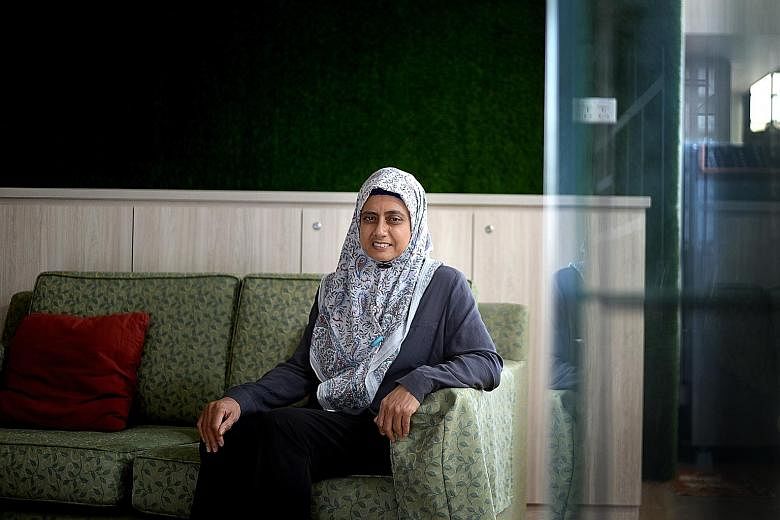Dr Radiah Salim loves her job as a locum family physician, tending to patients' physical ailments so they can get better and go about their daily tasks. Her other passion lies in raising awareness about invisible conditions that afflict the brain, particularly mental illness. In 2012, she founded Club Heal, a charity that provides support for those with such issues.
Having received Institution of a Public Character status, it now has three centres here and numbers Speaker of Parliament Halimah Yacob among its patrons. Since 2014, it has helped over 650 people through its programmes and home visits.
Dr Radiah, 54, the seventh of nine children, grew up with an elder sister who had schizophrenia. There were other family members who succumbed to mental illness - her sister's son, Amman, began to show symptoms similar to his mother's when he was 18 and, in 2000, leapt to his death at 23. In 2011, a second cousin with depression and bipolar disorder committed suicide.
The incidents prompted Dr Radiah to act on plans to start Club Heal. "Knowing what I know, I feel I should be a mental health advocate. You don't want similar tragedies happening to other people."
Formerly a resident medical officer at the Institute of Mental Health, she wanted to reach out to the Muslim community in particular. She noticed many Muslim mental health patients tend to relapse after being discharged, as they do not go for follow-up care offered by organisations such as the Singapore Association for Mental Health.
Her work involves educating patients and caregivers about mental illness, as well as empowering patients through rehabilitation programmes and support groups. Her family was not ashamed of her sister's illness, but they did not understand it well. Only when she studied medicine at university did she realise that what they had dismissed as signs of laziness were actually symptoms of illness.
Dr Radiah recalls a patient she visited in 2013, who went into depression after having lost her husband and mother in a year. "She didn't want to eat and had to be tube-fed."
A few months after making three home visits, Dr Radiah bumped into the patient's daughter, who said joyfully that her mother had started to come out of her depression and begun eating again. "That was really rewarding. I realised that when you help people with mental illness, you help their family members as well."
She takes pride in the fact that eight of Club Heal's 22 staff members are people with mental illness; four are its former beneficiaries.
Ms Nur Hafizah, 24, who has schizoaffective disorder, became a programme executive after joining Club Heal's programmes in 2014. "I had low self-esteem and was nervous about joining, but they were caring and made me feel comfortable about sharing my problems."
Ultimately, Dr Radiah hopes to see rehabilitative organisations like Club Heal become redundant.
"I want the stigma associated with mental illness to be completely eradicated so that all people will know what to do, and will seek help at the earliest signs of mental illness so they can recover," she said.
WATCH THE VIDEO
Dr Radiah on being a mental health advocate str.sg/radiahsalim


